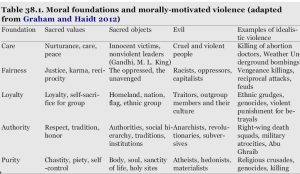* when one is engaged humorously one adopts a certain static ‘state of mind, a way of seeing and being, a special mental ‘set’ towards the world and one’s actions in it’ that calls for nothing. …a paratelic state precisely to distinguish it from the telic states that underwrite more serious, goal – directed forms of activity. … in laughter we often lose control of our normal abilities to act voluntarily in goal – directed ways. In laughter, muscle tone decreases and, in extreme cases, it is accompanied by the non – voluntary production of tears, and even by incontinence…
* developed comic sensibilities are, like developed moral and linguistic sensibilities, highly culturally situated.
* Richard Wiseman’s ‘Laugh Lab’ 4 reports that people from Ireland, the UK, Australia, and New Zealand prefer jokes implicating word – play, such as:
patient : ‘Doctor, I’ve got a strawberry stuck up my bum.’
doctor : ‘I’ve got some cream for that.
Americans and Canadians, in contrast, prefer jokes that seem to turn on a sense of superiority, for instance:
texan : ‘Where are you from?’
harvard grad : ‘I come from a place where we do not end our sentences with prepositions.’
texan : ‘Okay — where are you from, jackass?’
Wiseman’s data also suggests that Europeans display a preference for ‘surreal’ jokes, and for jokes about subject matter that makes many Americans uncomfortable — jokes about death, and marriage, for example. And Germans, apparently, don’t display preferences for particular kinds of jokes, but like them all equally.
* people who dislike complexity, novelty, or symmetry display a relative preference for incongruity – resolution humour: those possessed of strong preferences for incongruity – resolution relative to nonsense forms of humour also tend to prefer simple art forms, and simple patterns of dots on a card, relative to ‘fantastic’ art forms and more complex dot patterns…
* Affiliative forms of humour tend to be more popular in collectivist cultures, which emphasize the interdependence among the members of social groups, while aggressive forms of humour are more highly appreciated in societies where the needs of individuals take precedence over the needs of the group or community…
* Laughing together often is consistently cited by successful couples as something that promotes the strength of their relationships…
* In an early but well – known evolutionary theory of humour, Gruner hypothesized that laughter originated in the ‘sexy’ vocalizations that signalled victory in aggressive conflicts among our male ancestors ( Gruner 1978 ; cf. Eibl – Eibesfeldt 1973 ). Laughter, Gruner reasoned, still functions as a dominance signal that’s been updated to reflect the ways that more complex linguistic capabilities have made it possible to ‘defeat’ others in conversation.
* There is some evidence supporting a sexual selection model of humour. Women tend to laugh more than men do, and to seek out men who make them laugh; men tend to tell more jokes, and to seek out women who will laugh at their jokes ( Provine 2000 ; Lundy, Tan, and Cunningham 1998 ). Greengross and Miller (2011) found that intelligence predicts humour ability, that humour ability predicts mating success, and that males, relative to females, have more humour ability.
* comedians tend to be more suspicious than average, more intelligent, angrier, and more depressed. The early lives of the professional comedians interviewed were, moreover, typically characterized by intense feelings of isolation and deprivation. Subsequent research also suggests that many of the same familial conditions that predispose to the development of gelotophobia characterize the early lives of professional humourists: in general, comedians tend to describe their mothers very negatively, and in fact it appears that the mothers of children that go on to become professional humourists are selfish, controlling, less kind, and less likely to be intimately involved in the lives of their children than the average… the comedic skills of professional humourists are developed as a tool to cope with uncongenial family environments — in particular, as a way dealing with feeling of anxiety and rejection, and of gaining the attention and approval of otherwise dismissive parents. Following Ruch and Proyer (2009), it has been suggested that those who professionally seek out the laughter of others might be called gelotophilic. Gelotophiles more generally seek out or cultivate situations in which they can elicit the laughter of others, which is experienced as a source of joy and validation.
* self – disparaging forms of humour can facilitate depressive etiologies, and professional humourists score unusually highly on measures of psychotic traits, even relative to other creative artists and performers…
* Comic sensibilities may, then, be developed in different ways as tools to cope. But it remains unclear whether having a good sense of humour provides a good strategy for coping across the board. Abilities to produce comic materials are associated with premature mortality, and that link — like that between comedy and tragedy — may have deep roots. In a seminal study of young children, it was found that high ratings of a child’s sense of humour, from both parents and teachers, predicted a greater likelihood of dying over seven decades ( Friedman et al. 1993 ). A much more recent study found an inverse relationship between comedic talent and longevity, in a cohort of professional male comedians from Britain and Ireland ( Stewart et al. 2016 ). And it’s not just that the lifestyles of professional humourists from the UK are riskier than the average; it looks as though their level of comedic talent also matters: the funnier the comedian, the more likely they were to die prematurely. In the case of comic duos, the funnier of the two comedians was three and a half times more likely to die prematurely, relative to their partner, even after adjusting for differences in age ( Stewart et al. 2016 ).

